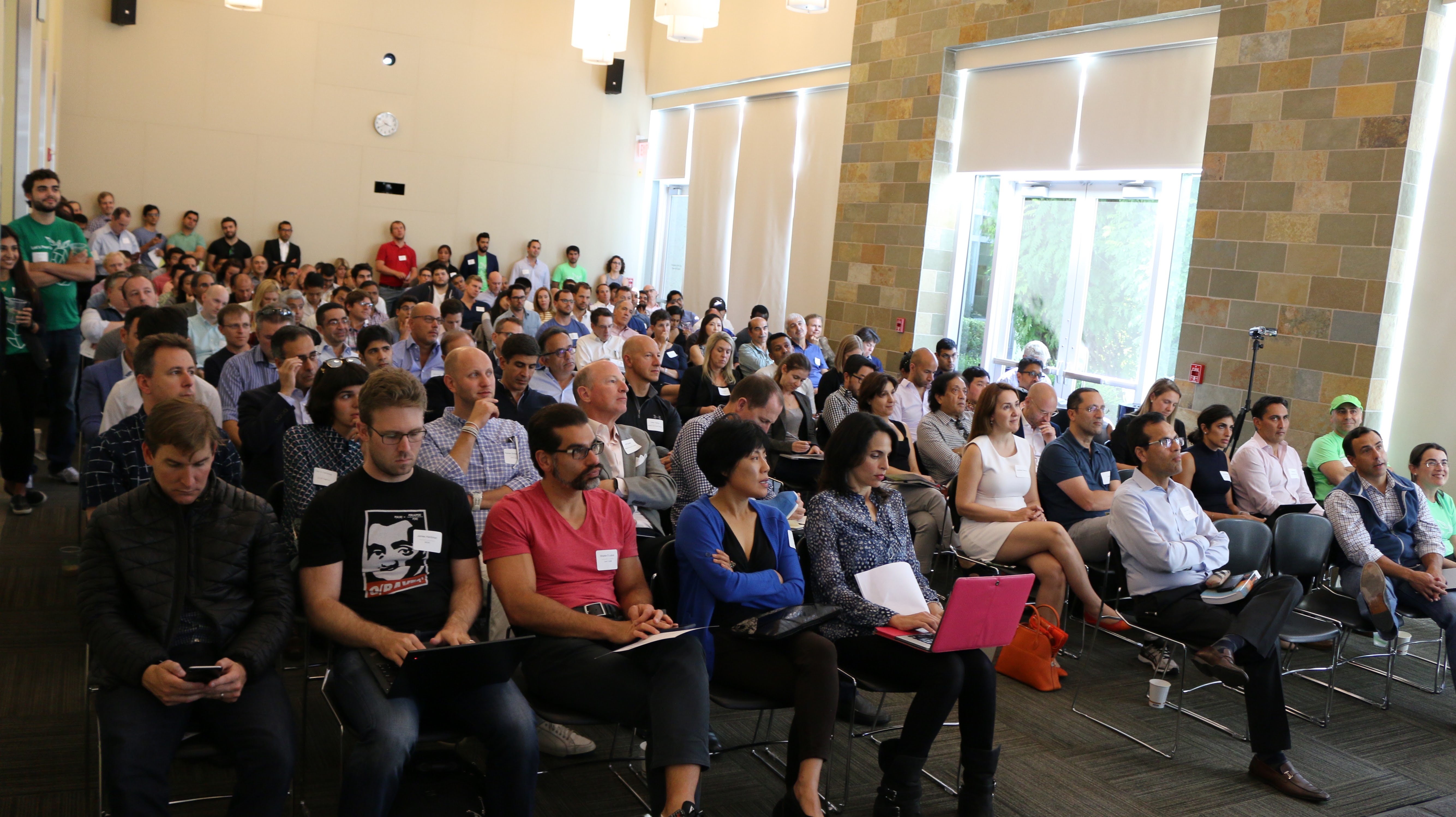You’re on vacation already? (We’re right behind you.)
Hope you have a wonderful long weekend, U.S. readers. For those of you elsewhere in the world, here’s wishing you a wonderful weekend, too. We’ll see everyone back here on Tuesday.:)
—–
Top News in the A.M.
Yikes. Samsung says it’s recalling its new Galaxy Note 7 smartphone worldwide after reports of the device catching fire while charging. CNN has more here.
—–
Chris Moore of Redpoint Ventures on a Market in “Flux”
Chris Moore is an increasingly rare breed. At the founding of Redpoint Ventures 17 years ago, Moore joined as an associate and — unlike today’s associates who often are cycled in and out of venture firms — he was made a partner. Since then, Moore has led deals in numerous companies that have gone on to sell for sizable amounts, including Auditude, acquired by Adobe; Right Media,acquired (and later shut down) by Yahoo; Efficient Frontier, acquired by Adobe; and Blue Kai, acquired by Oracle.
He also led Redpoint into Refresh, acquired earlier this year by LinkedIn for undisclosed terms.
Earlier today, before leaving Redpoint’s Sand Hill Road office for the long weekend, Moore talked with us about what he’s seeing in the market right now and why it “feels like it’s in flux.” More from that chat, edited for length:
We’re sort of confused about what’s happening out there these days.
I know, it isn’t really clear right now which way the market will go. We had a real run-up last year and the year before, with lots of money coming into the system and momentum investing and all the unicorn hoopla. Then, late last year, it started to feel a little more discriminate, I think in part because the funding ecosystem was just getting exhausted.
The beginning of the year felt particularly grim, but it appears things are moving full speed ahead again.
In January and February, we had that public market hiccup, and we all said, “Ooh, this is it. It feels like the start of the correction.” And it didn’t really happen. Interest rates are still low and tech is still the one place where there’s growth in the world and investors are still looking for growth.
I do think there’s more focus on the fundamentals, and that translates from the later stage growth market all the way down to the Series A market. I think we’re even starting to see it a bit in the seed market.
It seems like there are still an awful lot of companies getting funded.
The pace has slowed a bit over last year, but not a lot. Still, I know we’re more focused on the “show me” rather than the “tell me.” We’re looking for market validation and proof points in the form of customer momentum and evidence that the business model can work.
Are terms changing?
No, not at the Series A stage. If you start asking for [onerous] terms, it’s hurts the company and it hurts us, because your next set of investors are going to say, “Hey, they got those terms at the Series A; we want them, too.”
Are Series A valuations down?
—–
New Fundings
Boku, an eight-year-old, San Francisco-based direct carrier billing mobile payments company, has raised $13.75 million in funding from earlier backers Khosla Ventures, Benchmark, New Enterprise Associates, Index Ventures and DAG Ventures. TechCrunch has more here.
Beyond Verbal, a four-year-old, Tel Aviv-based “emotional analytics” company whose technology aims to extract a person’s full set of emotions and character traits using their voice as they speak, has raised $3 million in Series A funding led by KuangChi Science, with participation from Winnovation and Singulariteam. Tech.eu has more here.
Bitmovin, a three-year-old, Palo Alto, Ca.-based HTTP video streaming solutions and cloud server encoding systems developer company has raised $10.3 million in Series A funding led by Atomico. TechCrunch has more here.
C3 IoT, a seven-year-old, Redwood City, Ca.-based company whose Internet of Things analytics platform rides on top of Amazon Web Services, has raised $70 million in Series D funding led by TPG, with participation from previous investors Sutter Hill, Interwest Partners, and founder and CEO Thomas Siebel. ZDNet has more here.
Criquet Shirts, a 5.5-yar-old, Austin, Tex.-based men’s clothing startup focused around old school golf shirts and more, has raised $1.4 million in Series A funding led by CircleUp. CrowdFund Insider has more here.
Molotov, a year-old, Paris-based, feature-rich TV streaming service has raised $4.5 million in funding from the British media company Sky. The funding is part of what will be a larger round, says Sky. More here.
Yum China, a spinout of 19-year-old, Kentucky-based Yum Brands, has raised $460 million from the Alibaba affiliate Ant Financial, along with Alibaba investor Primavera Capital. TechCrunch has more here.
—–
IPOs
There are eight tech IPOs in the pipeline, and Renaissance Capital expects between 35 and 45 companies altogether to go out by the end of the year. More here.
—–
People
Argh. Another Uber driver has assaulted a passenger.
RelateIQ cofounder Steve Loughlin has joined Accel Partners as a partner. (That solves that mystery.)
—–
Data
Smartphone applications now account for half the time that U.S. users spend online, up from 41 percent back in July 2014, according to a new report from comScore. More here.
—–
Essential Reads
Rocket Internet is gearing up for its upcoming results day on September 22 and it’s already warning that its financials aren’t going to be pretty.
Uber will have to confront a lawsuit accusing it of creating fake Lyft accounts to lure its smaller rival’s drivers to phony ride requests the old-fashioned way — in a public courthouse.
—–
Detours
The complete encyclopedia of Drake memes.
When a commercial rocket blows up, who pays? (Asking for a friend.)
—–
Retail Therapy
Picco calfskin sneakers, from venture-backed M. Gemi.





